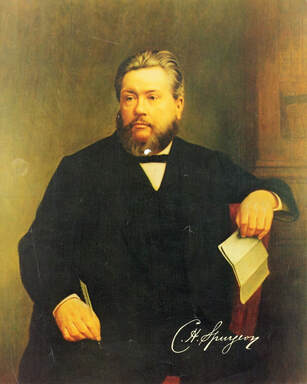 To listen to this message on Sermon Audio CLICK HERE To download the tract in colour CLICK HERE To download the tract in Black & white CLICK HERE “Now as He was going out on the road, one came running, knelt before Him and asked Him, ‘Good Teacher, what shall I do that I may inherit eternal life?’ So Jesus said to him, ‘Why do you call Me good? No one is good but One, that is, God. You know the commandments: ‘Do not commit adultery,’ ‘Do not murder,’ ‘Do not steal,’ ‘Do not bear false witness,’ ‘Do not defraud,’ ‘Honour your father and your mother.’’ And he answered and said to Him, ‘Teacher, all these things I have kept from my youth.’ Then Jesus, looking at him, loved him and said to him, ‘One thing you lack: Go your way, sell whatever you have and give to the poor and you will have treasure in Heaven; and come, take up the cross and follow Me.’ But he was sad at this Word and went away sorrowful, for he had great possessions. Then Jesus looked around and said to His disciples, ‘How hard it is for those who have riches to enter the Kingdom of God!’ And the disciples were astonished at His Words. But Jesus answered again and said to them, ‘Children, how hard it is for those who trust in riches to enter the Kingdom of God! It is easier for a camel to go through the eye of a needle than for a rich man to enter the Kingdom of God.’ And they were greatly astonished, saying among themselves, ‘Who then can be saved?’ But Jesus looked at them and said, ‘With men it is impossible, but not with God; for with God all things are possible.’ Then Peter began to say to Him, ‘See, we have left all and followed You.’ So Jesus answered and said, ‘Assuredly, I say to you, there is no one who has left house or brothers or sisters or father or mother or wife or children or lands, for My sake and the Gospel’s, who shall not receive a hundredfold now in this time - houses and brothers and sisters and mothers and children and lands, with persecutions - and in the age to come, eternal life. But many who are first will be last and the last first.” Mark 10:17-31  The Gospel According to Our Lord Jesus Christ The recorded examples of how our Lord counselled individuals for salvation stand in sharp contrast to our modern message and methods. The rich young ruler was earnest. He did not merely raise his hand while every head was bowed and every eye was closed. He did not merely walk down the aisle in response to an impassioned appeal. No, while every eye was opened and every head raised he ran to Christ. Rather than merely bow his head and repeat a set prayer, he fell on his knees before Christ and pleaded “…What must I do to inherit eternal life?” Mark 10:17 What was our Lord’s response? Did He say “just believe” or “just pray this prayer”? Did He tell him that God loved him and had a wonderful plan for his life? No. Jesus rebuked him: “Why do you call me good? No one is good -except God alone.” Our Lord began with the nature of God and the nature of man. Only God is holy. All people are sinners. You may ask why Christ rebuked him. Surely our Lord is God? Yes, but did the young man realise that? Was he merely seeking to flatter man or did he realise with Whom he was talking? Next, our Lord reminded him of the Ten Commandments: “You know the commandments: Do not murder, do not commit adultery, do not steal, do not give false testimony, do not defraud, honour your father and mother” Mark 10:19 Many would ask what the Law has to do with eternal life. The Scriptures state that: “…The Law was our tutor, to bring us to Christ, that we might be justified by faith” Galatians 3:24 Telling people that “Jesus is the answer” before they ask the question, is not helpful. No teacher hands out answer sheets to the students before an exam. Declaring that “Jesus saves” to people who are not yet conscious of a need to be saved is ineffective. Until people know the “bad news” of hell they are not ready to know the “good news” of Heaven. Until our hearers appreciate the eternal implications of the Holiness of God and the depravity of man, the holy Law of God and eternal judgment -they are not ready to receive the glorious message of redemption through the sacrifice of Christ. To put it more bluntly: until we understand that we are wicked sinners, lost and justly doomed to an eternity in hell we are not ready to truly appreciate the message of “…repentance and forgiveness of sins…” Luke 24:47 Incredibly, the young man declared that he had obeyed all those commandments since he was young. No doubt he was an extraordinary individual morally upright and devoutly religious - yet he lacked an awareness of his sinfulness. The greatest fault is to be aware of none. So, our Lord tells him: “One thing you lack… Go, sell everything you have and give to the poor and you will have treasures in Heaven. Then come, follow Me” Mark 10:21. Some may say that the Lord was demanding several things of him, but it actually amounted to one thing: repentance. Our Lord had singled out the first commandment “You shall have no other gods before Me” and the last “You shall not covet” The rich young ruler had apparently made an idol of his wealth. His riches had become more important to him than obedience to God. The Ten Commandments deal with our relationships with God, our parents and other people. They deal with: God, worship, speech, time, authority, life, love, property, truth and conscience. They forbid polytheism, idolatry, profanity, desecration of the Sabbath, dishonouring of parents, murder, adultery, theft, perjury and coveting. By studying the Law of God we come to realise how far short we fall. The message to those who recognise their transgressions is one of repentance and faith. As repentance without faith is not true repentance, so faith without repentance is not true faith. When he heard what our Lord required, “…the man’s face fell. He went away sad, because he had great wealth” Mark 10:22: Instead of chasing after him and lowering the standard, “Jesus said to His disciples, ‘How hard it is for the rich to enter the Kingdom of God!’ The disciples were amazed at His words. But Jesus said again, ‘Children, how hard it is to enter the Kingdom of God!’” Mark 10:23-24  How often do we claim that it is easy to be saved? Yet our Lord did not lower the standard. In fact He taught that it would be hard to enter the Kingdom of God. Not only hard for the rich but hard for anyone! “The disciples were even more amazed and said to each other, ‘Who then can be saved?’ Jesus looked at them and said, ‘With man this is impossible…”’ Mark 10:26-27 Do we realise the implications of this? All mankind is lost and no one can save himself. Neither can any pastor, evangelist or denomination save anybody. No amount of sacraments, praying, singing or preaching can save anyone. Eloquence cannot do it, neither can emotional techniques or a charged atmosphere. “With man this is impossible, but not with God; all things are possible with God” Mark 10:27. A Biblical illustration of conversion is found in John 11 when our Lord stood before the tomb and called out: “Lazarus, come out!” Now Lazarus had been dead for four days. Is it reasonable to call upon a decaying corpse to respond? Nevertheless that is what evangelism is. Outside of Christ we are dead in our transgressions and sins (Ephesians 2:1). Faith is a gift from God (Ephesians 2:8) and faith comes from hearing the Word of God (Romans 10:17). “The Gospel… is the power of God for the Salvation of everyone who believes” Romans 1:16. Only the Word of God can save, so why do we subtract from this powerful life-giving Word? Why do we think we can add anything of value to it? Jesus then emphasised the need for sacrifice and for endurance of persecutions. Finally He promised blessings, rewards and eternal life to those who obey His message (Mark 10:28-31). What is Wrong with Much of the Gospel Preached Today? Listening to the average “gospel” message proclaimed from all too many pulpits and on radio and TV, it is hard to avoid the conclusion that most evangelistic messages today are man-centred, emotion-based, weak and shallow. The “just believe” gospel is cheap. Judas sold Christ for 30 pieces of silver. We just give Him away free. The “just pray this prayer” message is superficial and it produces superficial converts. The “easy believism” so often proclaimed is synthetic. It’s like white bread. All the natural goodness has been refined out and artificial ingredients have been added. The Missing Parts of the Gospel Message Seldom does one hear the nature of God taught on, expounded and explained. To assume that our hearers truly understand - and appreciate - the majesty, the holiness and the glory of our all-powerful, all-knowing, infinite and eternal Creator is presumptuous. The Fear of God The fear of the Lord is the beginning of all wisdom (Prov. 9:10). The Lord’s mercy extends to those who fear Him (Acts 10:35). The Lord instructs those who fear Him (Psalm 25:12). The foundation for effective service is the fear of the Lord (Joshua 24:14). The Lord’s great blessing is upon those who fear Him (Psalm 31:19). Yet, how often do we hear these great truths proclaimed? The Law of God “The Law of the Lord is perfect, converting the soul” Psalm 19:7 and “…through the Law we become conscious of sin” Romans 3:20. Yet how often do we proclaim the Law of God?  Martin Luther declared: “The first duty of the Gospel preacher is to declare God’s Law and show the nature of sin.” John Bunyan said: “The man who does not know the nature of the Law cannot know the nature of sin.” John Wesley suggested that evangelists should preach 90% Law and 10% Grace. Charles Finney wrote: “Failure to use the Law is almost certain to result in false hope, the introduction of a false standard of Christian experience and to fill the church with false converts.” Charles Spurgeon declared: “They will never accept Grace till they tremble before a just and Holy Law.” As our Lord taught: “Do not think I have come to abolish the Law or the Prophets; I have not come to abolish them but to fulfill them. I tell you the truth, until Heaven and earth disappear, not the smallest letter, not the least stroke of a pen, will by any means disappear from the Law… Anyone who breaks one of the least of these commandments and teaches others to do the same will be called least in the Kingdom of Heaven, but whoever practises and teaches these commands will be called great in the Kingdom of Heaven.” Matthew 5:17-19 The Wrath of God Similarly, the wrath of God, the doctrine of eternal Judgement and the reality of Hell receive scant attention in most modern sermons. “...For they would not follow His ways; they did not obey His Law. So He poured out on them His burning anger…” Isaiah 42:24-25 “…Do not be afraid of those who kill the body and after that can do no more. But I will show you whom you should fear: Fear Him who, after the killing of the body, has power to throw you into hell Yes, I tell you fear God.” Luke 12:4-5 “…Whoever rejects the Son will not see life, for God’s wrath remains on him.” John 3:36 “The wrath of God is being revealed from Heaven against all the godlessness and wickedness of men who suppress the truth by their wickedness…” Romans 1:18 Blood Atonement on the Cross Even the heart of the Gospel message - the redemption achieved by the Blood of Christ’s Atonement on the cross - receives surprisingly little emphasis from most modern evangelists. “…Without the shedding of Blood there is no forgiveness.” Hebrews 9:22 The Blood of Christ “God presented Him as a sacrifice of Atonement, through faith in His Blood.” Romans 3:25 The Scriptures declare that: “…the Blood of Jesus, His Son, purifies us from all sin.” 1 John 1:7 -Yet how often do we hear that message proclaimed?  Biblical Repentance Also conspicuous by its absence is a Biblical emphasis and understanding of repentance. I have heard prominent evangelists say that “repentance is just saying you are sorry!” By way of contrast the Bible emphasises three aspects of repentance: Conviction - a change of mind. Contrition - a change of heart. Conversion - a change of life/behaviour/lifestyle. Attitude and Action. Creed leads to conduct. Belief affects behaviour. Faith in Action. It is not enough to confess our sin, we also need to mentally reject sin, to loathe it and forsake it. Repentance involves a change of belief, a change of will and a change of behaviour. “Let the wicked forsake his way and the evil man his thoughts. Let him turn to the Lord and He will have mercy on him. ..” Isaiah 55:7 UnBiblical Additions to the Gospel In place of the Biblical message of the holiness of God, the sinfulness of man, the Law of God, the wrath of God and eternal judgement and the need for repentance from sin and faith in the Atonement of Christ’s Blood, many preachers have substituted a series of unBiblical innovations. Nowhere in the Bible will you find any example of an evangelist, apostle or disciple using any of the following popular phrases or techniques: “God loves you and has a wonderful plan for your life.” Instead Scripture makes it clear that God is angry with those who refuse to obey and eternity in hell is His plan for the unrepentant. “Accept Jesus as your personal Saviour”. “Accept” is the weakest word possible and it is never used in any evangelistic context. Why don’t we use the powerful words used in the Bible? E.g. “God… now commands all people everywhere to repent” Acts 17:30. A call to submit to Christ or to surrender our lives to Him as Lord and Saviour would be more Biblical than a weak appeal to “accept Jesus.” “Only you can open the door of your heart. Jesus is standing at the door of your heart knocking. He is a gentleman and will only come in if invited. The handle is only on the inside. Only you can let Him in.” This imaginative emotional appeal ignores the sovereignty of God. In the case of the conversion of Saul on the road to Damascus, it would appear that our Lord kicked the door in without any “permission” from Saul (Acts 9). Nowhere in the Bible do we find a single incident of an evangelist or disciple using such imagery to describe conversion. Throughout the Gospels and the book of Acts we are challenged to come to Christ and seek entry into His house. Now we are expected to believe that the situation has so reversed that Christ now comes to us and asks us to allow Him entry!  A Rebuke to Lukewarm Believers Perhaps this concept is derived from Revelation 3:20. However that verse is part of Christ’s letter to the church at Laodicea. Far from having any evangelistic application, it is a severe rebuke to a lukewarm church: “I know your deeds, that you are neither cold nor hot. I wish you were either one or the other! So, because you are lukewarm - neither hot nor cold - I am about to spit you out of my mouth… Those whom I love I rebuke and discipline. So be earnest and repent. Behold I stand at the door and knock…” Revelation 3:15-20 Danger of Half-Hearted, Worldliness & Compromise It is tragic that part of the letter written to warn the church against the danger of half-heartedness, worldliness and compromise could have been so abused as to produce lukewarm, semi-saved converts. If only the full context of this passage was used as often as verse 20. Or have strong Biblical words like “rebuke,” “discipline,” “be earnest” and “repent” become unacceptable to today‘s modern congregations? Reject Insipid Concepts Similarly the insipid phrases “Just believe” and “just pray this prayer” are unBiblical. We certainly must believe - but it is the entire Bible which we must study, believe, obey, proclaim and apply. We must pray but we need to do much more than “just pray.” The Great Commission of our Lord Jesus Christ commands us to “Make disciples… teaching them to obey everything I have commanded you.” To place a “just” in front of any of the commands of Scripture is to devalue all the other important requirements. Beware of Shallow Clichés Along with these phrases we have accepted several inadequate slogans to convey apparently Christian messages such as: “Christians aren’t perfect - just forgiven.” While it is true to say that we are forgiven, yet are imperfect, the insertion of the overused “just” turns this slogan into a dangerous half-truth. Are we only forgiven? Are we not regenerated as well as redeemed? What about sanctification? If we have not evidenced a dramatic transformation in our beliefs, moral standards, way of life, behaviour and conduct then it is doubtful we are even forgiven (1 Corinthians 6:9-11; Galatians 5:19-25). The Bold and Balanced Biblical Gospel This then is the bold and balanced Gospel of Christ: God is a holy God and His righteous standards are seen in His Law. Man is sinful and needs to repent from his wickedness and trust in Christ. This repentance and faith is to be evident in obedience to Christ, a willingness to sacrifice and to suffer persecution. To those who do so He promises great blessings, rewards and eternal life. Make Disciples, Teach Obedience Instead of offering a weak, diluted, man centred message of “just believe and receive,” we need to faithfully proclaim a Christ-centred, Bible-based and Holy Spirit led message of “repentance and obedience.” Rather than making converts we need to: “…make disciples… teaching them to obey everything I have commanded you…” Matthew 28:19-20.  Repent and Obey It is this message which deals with the heart of the matter. Anything else would be as inadequate as placing a band-aid plaster on a cancer. However, the Gospel of Christ faithfully proclaimed would result in a purged, purified, prayerful and powerful church - prepared to honour and obey Christ in all areas of life. Dr. Peter Hammond Livingstone Fellowship P.O. Box 74 Newlands 7725 Cape Town South Africa Tel: 021-689-4480 [email protected] www.LivingstoneFellowship.co.za www.FrontlineMissionSA.org
0 Comments
Leave a Reply. |
DiscipleshipArticles
All
Archives
May 2023
|


 RSS Feed
RSS Feed